82 F. old record high (1882).
50 F. average high on April 1.
37 F. high on April 1, 2014.
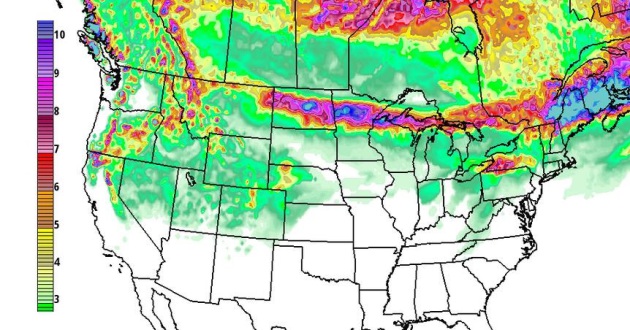
Dueling Models
"But who wants to be foretold the weather? It is bad enough when it comes, without our having the misery of knowing about it beforehand" mused Jerome K. Jerome. Amen brother. Keeping tabs on Mother Nature is a blessing and a curse, depending on the day.
Computers, satellites and Doppler radar have resulted in fewer unpleasant surprises, fewer deaths, in spite of an uptick in extreme weather. But many days the 7-Day Outlook remains a mystery. We're drowning in data, adrift in a sea of dueling weather models, hundreds of them. What to believe, and when?
Exhibit A: the normally reliable ECMWF (European) model suggests chilly 30s and 40s next week with a couple inches of slushy snow close to home. Say what? Shades of early March. But NOAA's GFS is 5 to 15 degrees milder; highs closer to 50F.
There's little doubt you'll need a light jacket or sweatshirt by the weekend; a chilled Canadian breeze beating spring fever into submission until mid-April, when 60s should return. A cold rain Monday & Tuesday may mix with snow, especially north of MSP.
With Minnesota in moderate drought we'll take moisture any way we can get it. We need 2-6 inches of rain to get back up to "normal".
* .25 degree GFS guidance from NOAA, showing predicted snowfall amounts through April 9.
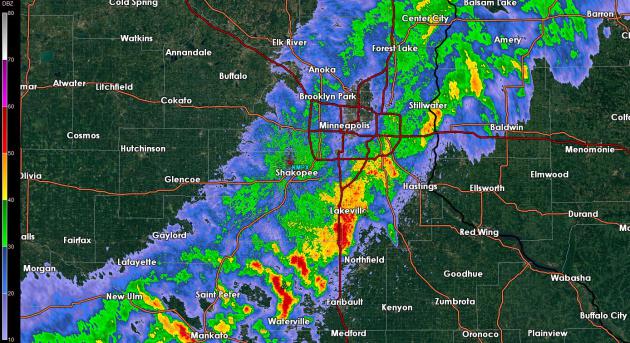
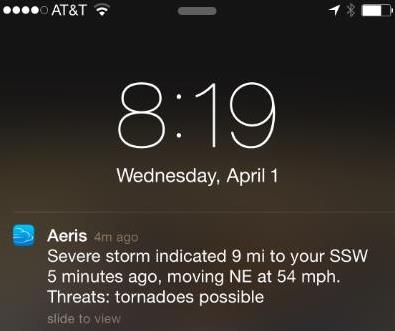
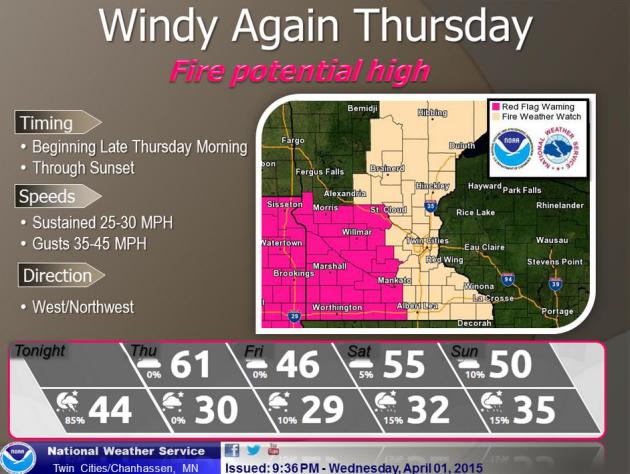
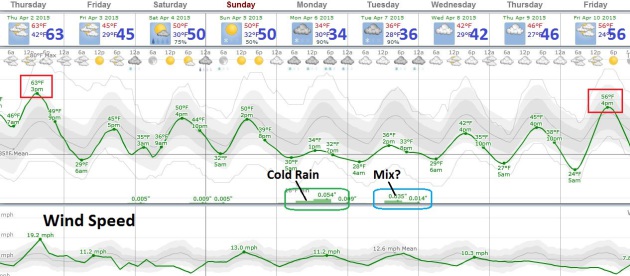
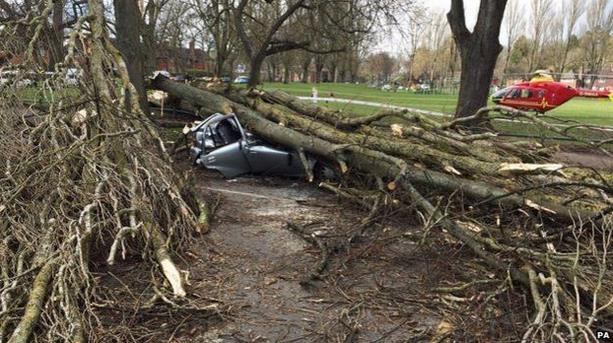
Photo credit above: "A driver was badly injured when his car was hit by a falling tree in Birmingham." PA.
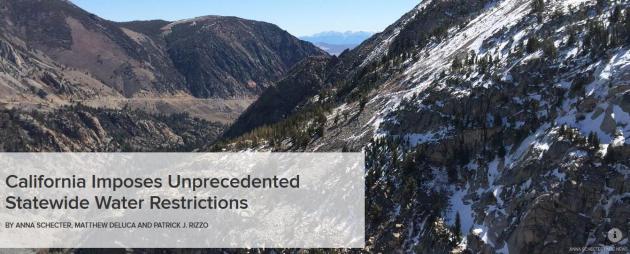
California Imposed Unprecedented Statewide Water Restrictions. It's not looking good for California, where a 3-year drought shows signs of intensifying. Here's the latest from NBC News: "In
a historic move, California is ordering water use to be slashed by 25
percent across the state to deal with a drought that just won't quit.
With more than 98 percent of the state suffering from a drought that has
stretched into its fourth year, Governor Jerry Brown issued an
executive order from the mostly snow-bare Phillips Station in the Sierra
Nevada mountains -- an area that would usually have snow pack more than
66 inches deep at this time of year..."
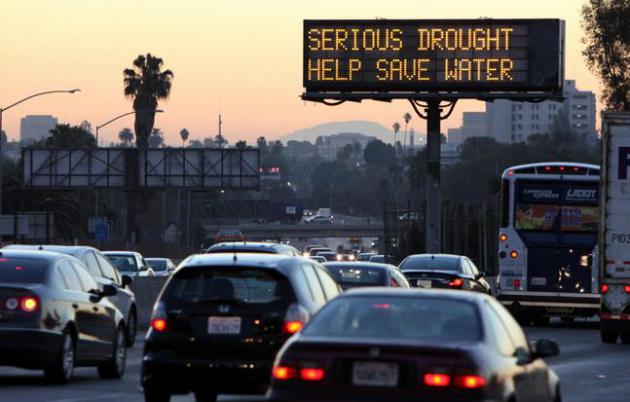
California Farmers Near "Survival Mode" As Drought Drags On. NBC News has the video and story details; here's a snippet: "...Economists
and researchers so far haven't hit the panic button, and aren't
forecasting a widespread spike in consumer food prices. That's in part
because of crop diversity. If there's a significant drop in
California-grown rice for example, rice farmers in the South might shift
some production to fill the gap. But everyone knows mountain snowpack
levels are low, and many farmers are already hunkering down for another
year of water cutbacks. Vast tracts of farmland have been fallowed,
which basically means idling cropland to accumulate moisture. Some
communities have been short on drinking water..." (File photo: AP Photo/Richard Vogel, File).
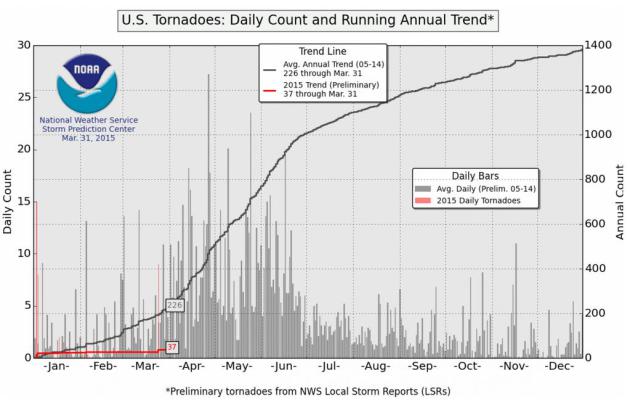
March: Quietest Month for Tornadoes Since 1969. 10 tornadoes - for the entire month of March? What is going on? Here's an excerpt from a recap at The Capital Weather Gang: "With a preliminary count of just 10 tornadoes,
March will likely end up being the quietest such month for severe
weather since 1969, and at least the quietest March in the 21st century
thus far. While that record easily stands on its own, the month of March
was really just a continuation of extremely low severe weather activity
so far in 2015. Interestingly, it’s the third March in a row of
below-average tornado activity..."
Graphic credit above: "Tornadoes so far this year are shown in red. Average tornado numbers are shown in grey." (NOAA)

Lasers Map The Earth That Moved in Colorado's Epic Floods.
All or nothing, mega-drought or biblical flooding. This is what climate
volatility/disruption looks like. Here's an excerpt from an eye-opening
look at Boulder's 2013 flash flooding at WIRED: "...By
combining the typical rate of weathering with the total volume of
material the storm flushed away, the Andersons calculated that the storm
had flushed out about 400 years worth of material from the
mountains—unheard of for the Rockies, and a clear indicator of this
one-time event’s impact. “This amount of erosion in this amount of time
wasn’t on people’s radars simply because it hadn’t been observed,” says
Scott Anderson..."
Image credit above: "The
leftmost map shows a valley before the storm, and the middle is after.
The right map shows the elevation change between the two other maps,
with blue indicating loss of sediment, and red showing deposition." Scott Anderson.

How To See Disaster Coming.
Are natural disasters truly unpredictable or is their method to the
(apparent) madness...and randomness? Here's an excerpt of a very
interesting article at Pacific Standard Magazine: "...Forecasting catastrophe is hot stuff
these days, but it remains a tricky business. In order to make accurate
predictions about some of the world's most complex systems, including
earthquakes, financial markets, and even our brains, researchers need
accurate models. Yet many current models make the unrealistic assumption
that the world is deterministic; that is, that the future is perfectly
predicable based on its present state. In reality, the world is usually a
little bit random—what scientists call stochastic.."
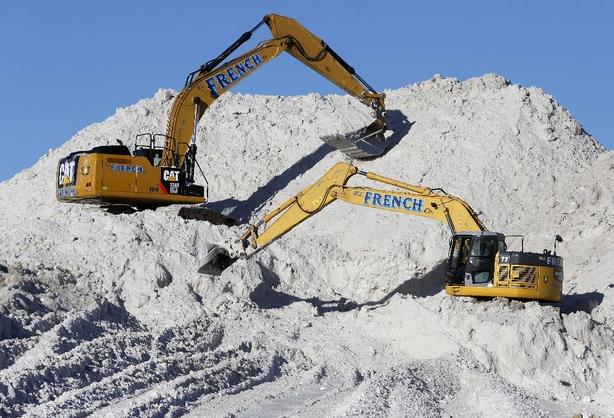
Photo credit: Michael Dwyer, AP.
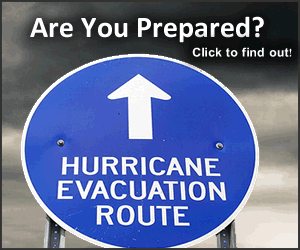

Surprising Research About Weather And Your Mood. Here's a snippet from a story at About Health: "...The commonly held belief that sunny bright days and pleasant weather generally makes people happier was not supported by this research. It was determined that temperature, wind and level of sunlight had a significant effect on negative mood. Sunlight also seemed to have an effect on participants' energy level. The authors speculated that sunlight's effects on tiredness may have something to do with Vitamin D3, which is indicated in the production of serotonin. Serotonin is a neurotransmitter that is involved with mood and level of energy..."
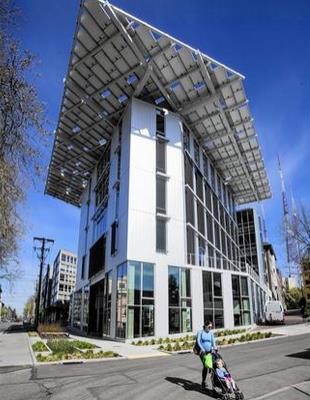
Photo credit above: "Solar panels on the roof of the Bullitt Center office building." (Steve Ringman / Seattle Times).

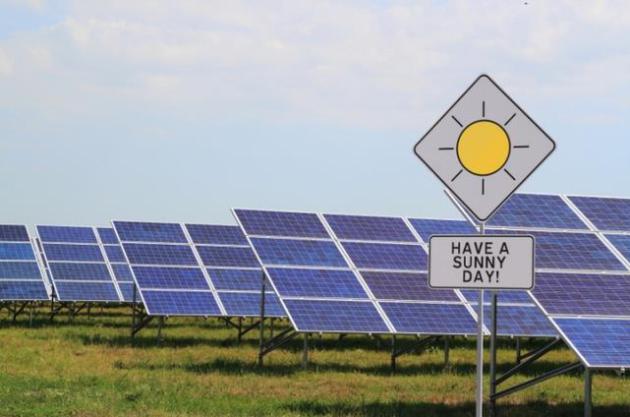
Photo credit above: "A solar power generating station in the Ukraine." Credit: Activ Solar/flickr.

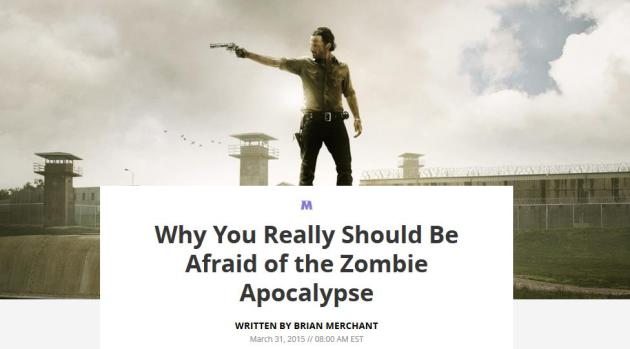
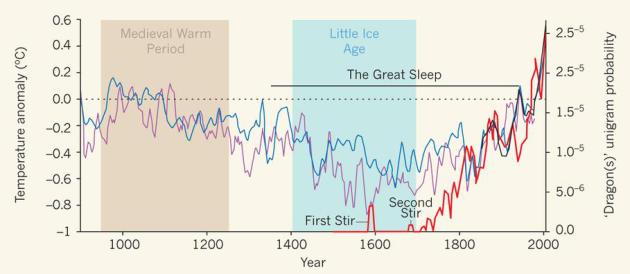
Image credit above: "The relative frequency of 'dragons' in fictional literature (thick red line), as determined as a unigram probability4, with two historical reconstructions of Northern Hemisphere temperature (decadal smoothing) shown in blue5 and purple6. Global temperatures have been measured since 1855 (thick black line5). Temperature anomalies represent deviations from the 1961–90 reference period. The rising incidence of dragons in the literature correlates with rising temperatures, and suggests that these fire-breathing lizards are being sighted more frequently. As a result, the large-scale 'Third Stir' is deemed to be imminent."

* More April Fools' Day pranks, courtesy of BuzzFeed.
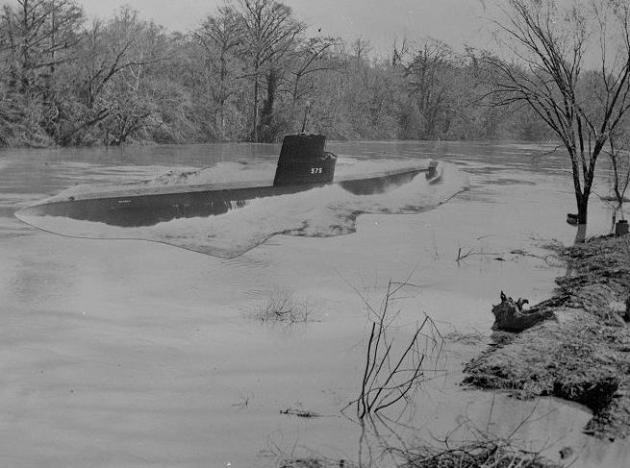
Photo credit above: "Doctored newspaper photo of a submarine in the Tar River, April 1, 1961. The Daily Reflector of Greenville N.C." Joyner Library at East Carolina University.
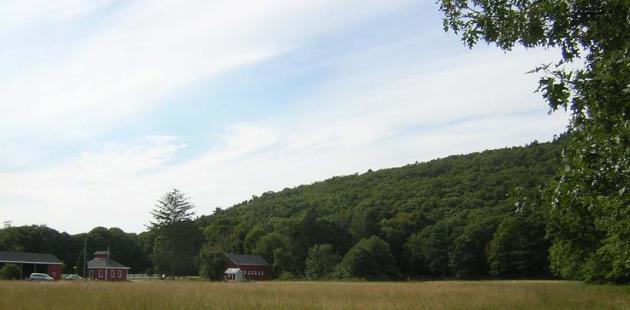
Photo credit above: "Great Blue Hill, ready to blow?" (James L. Woodward at Wikimedia Commons)

TODAY: Partly sunny, windy & pleasant. Winds: W 15-30. High: 62
THURSDAY NIGHT: Partly cloudy and cooler. Low: 31
FRIDAY: Mostly cloudy and chilly. High: 46
SATURDAY: Patchy clouds, drier day of weekend. Wake-up: 35. High: 51
SUNDAY: Early showers, unsettled. Wake-up: 33. High: 45
MONDAY: Steadier, heavier rain possible. Wake-up: 32. High: 46
TUESDAY: More rain, slushy mix north? Wake-up: 37. High: 43
WEDNESDAY: Peeks of sun, still cooler than average. Wake-up: 32. High: 45
Climate Stories....
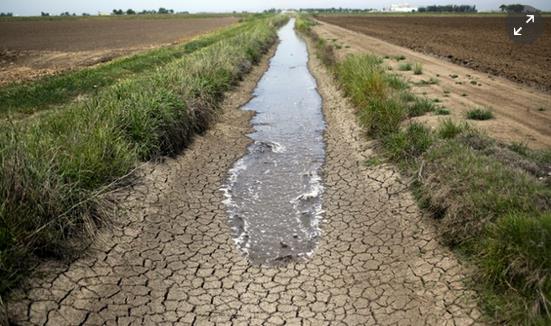
Photo credit above: "Irrigation water runs along a dried-up ditch between rice farms in Richvale, California." Photograph: Jae C. Hong/AP.
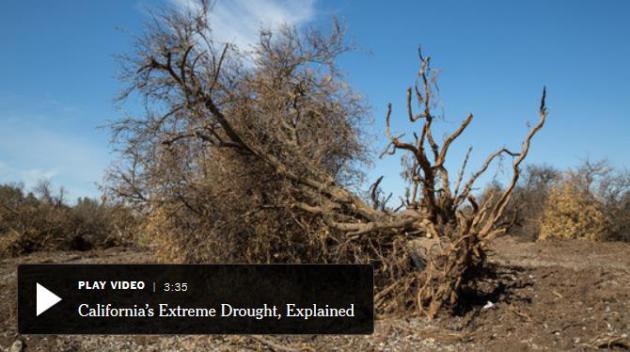
California Drought Is Worsened By Global Warming, Scientists Say. The New York Times connects the dots; here's an excerpt: "...The
drought is made of two components: not enough rain and too much heat,”
said Michael Oppenheimer, a climate scientist at Princeton. “The rain
deficit isn’t clearly connected to climate change, but the planetary
warming has made it more likely that the weather would be hotter in
California.” Warmer temperatures worsen drought by causing more
evaporation from reservoirs, rivers and soil. Scientists say that the
warming trend makes it highly likely that California and other parts of
the Western United States will see more severe droughts in the future..."
Image credit above: "California is experiencing the worst drought in its history, and the effects are being felt nationwide." By Carrie Halperin, Sean Patrick Farrell and Caitlin Prentke on Publish Date April 1, 2015. Photo by Monica Almeida/The New York Times.
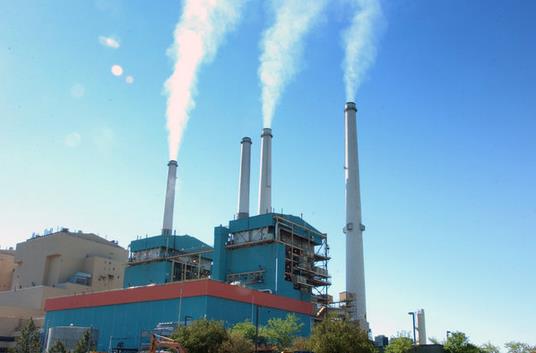

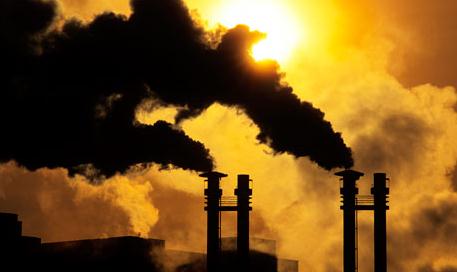
Obama Offers Major Blueprint on Climate Change. The New York Times reports; here's the introduction: "The
White House on Tuesday morning unveiled President Obama’s blueprint for
cutting United States greenhouse gas pollution by nearly a third over
the next decade. Mr. Obama’s plan, part of a formal submission to the
United Nations ahead of efforts to forge a climate change accord in Paris in December, detailed the United States side of an ambitious joint climate change pledge the president made in November in Beijing with the Chinese president Xi Jinping..."
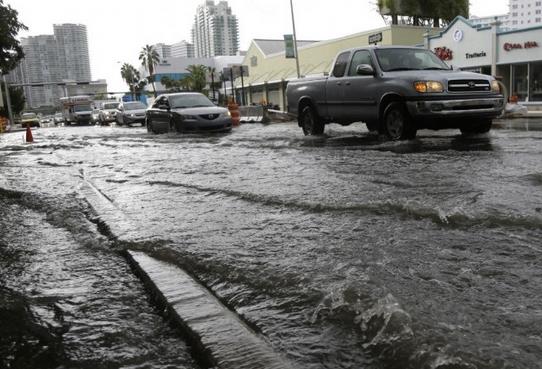
Florida's Climate Denial Could Cause Catastrophic Recession.
The same people who fear Big Government getting bigger may be the first
ones with their hands out, asking FEMA for help after the next
inevitable mega-storm. Here's an excerpt from ThinkProgress that caught my eye: "...But
the joke is on all of us: Florida has led the way in all but ignoring
the growing twin threats created by human-caused climate change — sea
level rise and superstorm surge — thereby creating a trillion-dollar
real-estate bubble in coastal property. When the next superstorm like
Katrina or Sandy makes its target Florida and bursts that bubble, the
state can declare bankruptcy. So too could some insurance companies. But
taxpayers — you and I — will get the several hundred billion dollar
bailout bill..."
Photo credit above: "Miami
streets see heavy flooding from rain in September 2014. Some
neighborhoods flood regularly during deluges or extreme high tides." CREDIT: AP Photo/Lynne Sladky.

Forget "Bans" On Talking About Climate. These Florida Republicans Are Too Busy Protecting Their Coasts. Not all Republicans deny the science. Here's the intro to a story at The Washington Post: "Patty
Asseff, a longtime realtor and a Republican, drives through town in her
jet black Tesla. Asseff, who has sold so many homes here, speaks with
passion about two related matters — clean energy, and making Hollywood
homes more resilient, not just against hurricane threats but against
periodic flooding that seems to be worsening as sea levels rise..."
Photo credit above: "Hollywood, Fla., Commissioner Patty Asseff." (Angel Valentin for The Washington Post)
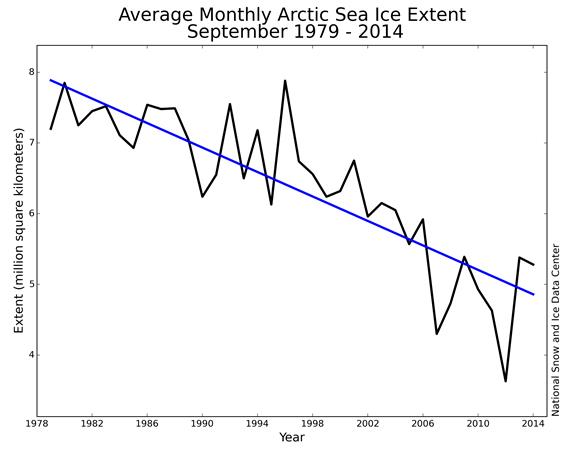
Natural Variability Could Slow The Pace of Arctic Summer Sea Ice Loss, Study Says. Carbon Brief has the story - here's an excerpt and link: "Natural
fluctuations in the oceans and atmosphere are currently conspiring to
amplify the impact of manmade global warming on summer Arctic sea ice,
according to a new paper. Were these different cycles to weaken or
reverse, they could instead dampen the warming effect in the Arctic, and
slow the rate of Arctic sea ice loss, the author says..."
Graphic credit above: "Average September Arctic sea ice extent from full satellite record (1979-2014), Source: NSIDC.
Commercial snow removal is very important for many people. Although most residential owners believe it's an expensive service that's generally geared more towards
ReplyDeletecommercial businesses, they are actually quite beneficial when considering the responsibility everyone has to keep others safe throughout the winter season.
see more at-commercial snow removal massachusetts
dear,
ReplyDeleteall mens/womens
Selecting the right sexual enhancement products can be a highly difficult task with so many options right in front of us.
Take a look at for more: Biomanix reviews
Fire trucks are everyone’s childhood fascination. used fire trucks for sale
ReplyDelete